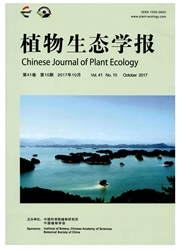

 中文摘要:
中文摘要:
准确模拟绿色面积指数是作物生长模拟模型可靠预测作物生长和产量的关键。该研究的目的是以生理生态过程为基础,构建油菜(Brassica napus)叶面积指数和角果面积指数变化动态的模拟模型。油菜叶面积指数模型综合考虑了库或源限制下的叶面积增长模式,其中库限制下叶面积指数的增长呈指数方程,且受到温度、水分和氮素因子的影响;源限制下叶面积指数增长用比叶面积法来模拟。油菜角果面积指数由比角果面积和角果干物重来决定。比叶面积和比角果面积均为生理发育时间的函数。利用不同类型品种的播期试验及氮肥试验资料分别对模型进行了校正和检验,结果表明模型能较好地模拟不同条件下油菜叶面积指数和角果面积指数。
 英文摘要:
英文摘要:
Aims Accurate simulation of green area index is critical for reliable prediction of crop growth and yield using a crop growth model. Our study was undertaken to develop a process-based simulation model for predicting dynamic green area index, including leaf area index (LAI) and pod area index (PAl), in winter rapeseed ( Brassica napus ). Methods Leaf area expansion was simulated through the relationship between LAI and source- or sink-limited dry matter. Daily leaf expansion rate increased in an S- shaped growth curve under source limitation, as influenced by temperature, water and nitrogen levels. Under the sink limitation, leaf area expansion was quantified on the basis of specific leaf area. Pod area was calculated from specific pod area and pod dry matter. The specific leaf area and specific pod area were determined from physiological development time and genotype. We calibrated and validated the model using experimental data from different varieties, sowing dates and nitrogen fertilization rates. Important findings Root mean square error (RMSE) values at three N levels, and the average RMSE value of PAl in two of LAI were 11.15 %, varieties was 12.92%. 15.57% and 16.87% Plotting the 1 : 1 relationship between the simulated and observed values in LAI and PAl growth dynamics indicated a good fit. Our model of green area index in winter rapeseed shows a high accuracy and applicability under different conditions.
 同期刊论文项目
同期刊论文项目
 同项目期刊论文
同项目期刊论文
 期刊信息
期刊信息
